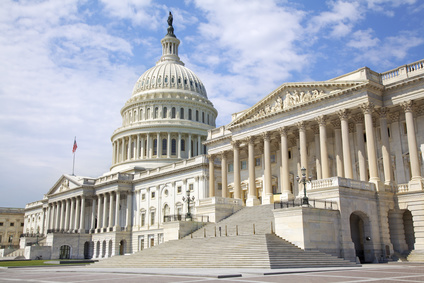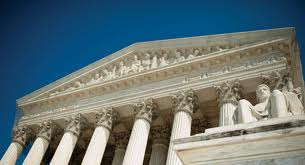In a 5-4 ruling, the Supreme Court of the United States held that anti-steering provisions in agreements between a credit card company and merchants wishing to accept the card do not violate federal antitrust law. A copy of the opinion in Ohio v. American Express Co. is available at: Link to Opinion. The defendant credit card company required merchants who wanted to accept the company’s credit cards to agree to an anti-steering contractual provision. Under the company’s business model, and unlike other credit card companies, it earned most of its revenues not from collecting interest from cardholders but from merchant…
Posts tagged as “Supreme Court”
On June 28, the U.S. Supreme Court granted a Petition for a Writ of Certiorari in Obduskey v. McCarthy & Holthus LLP that presents the question “whether the FDCPA applies to non-judicial foreclosure proceedings.” The borrower in the underlying case defaulted on his home loan and the mortgage servicer hired a law firm to pursue a non-judicial foreclosure. The borrower informed the law firm he was disputing the debt and the law firm, without responding to the dispute, proceeded with the non-judicial foreclosure. The borrower then filed a lawsuit against the mortgage servicer and law firm alleging, among other things,…
With its unanimous ruling yesterday that a debt buyer is not a “debt collector” under at least one reading of the federal Fair Debt Collection Practices Act, the U.S. Supreme Court offered some clarity to the financial services industry seeking to assess debt purchaser FDCPA liability. It did, however, refuse to address an alternative interpretation that will likely be used in an attempt to end-run the ruling. The decision in Henson v. Santander Consumer USA Inc. is available at: Link to Opinion. Debt Collector Must Be Collecting for ‘Another’ Santander Consumer USA Inc. acquired defaulted loans from CitiFinancial Auto and then…
A purchaser of a defaulted debt who then seeks to collect the debt for itself is not a “debt collector” subject to the federal Fair Debt Collection Practices Act under an opinion delivered today by the U.S. Supreme Court. The issue before the Court was whether a purchaser of defaulted debt meets the FDCPA’s definition of a “debt collector” as one who “regularly collects or attempts to collect . . . debts owed or due . . . another.” 15 U. S. C. §1692a(6). Here, Santander Consumer USA Inc. acquired defaulted loans from CitiFinancial Auto and then began to collect…
Yesterday’s oral argument before the U.S. Supreme Court in Spokeo v. Robins suggests a struggle to fashion an understanding of what can constitute an “injury in fact.” It pitted the issue of whether a plaintiff’s standing to sue requires a tangible, concrete injury (loss of money, a job or property right) against the concept that the law can identify a “harm” (in this case, inaccurate information in a credit report) which itself is a real injury. Finding the Injury Spokeo v. Robins concerns an alleged violation of the Fair Credit Reporting Act. Robins claimed Spokeo compiled a report about him that contained false information…
In a seven to two opinion released this morning, the Supreme Court held that a plaintiff, who is unsuccessful in a claim under the Fair Debt Collection Practices Act (“FDCPA”) 15 U.S.C. 1692, et seq., can be liable for the defendant’s costs even if the lawsuit was not brought in bad faith. The opinion was delivered by Justice Thomas. Justices Sotomayor and Kagan dissented with Justice Sotomayor on the dissenting opinion. Marx concerned whether the FDCPA’s section 1692k(a)(3), which provides for an award of attorneys fees and costs if an FDCPA suit is brought in “bad faith and the the purpose of harassment,” prevents the awarding…





